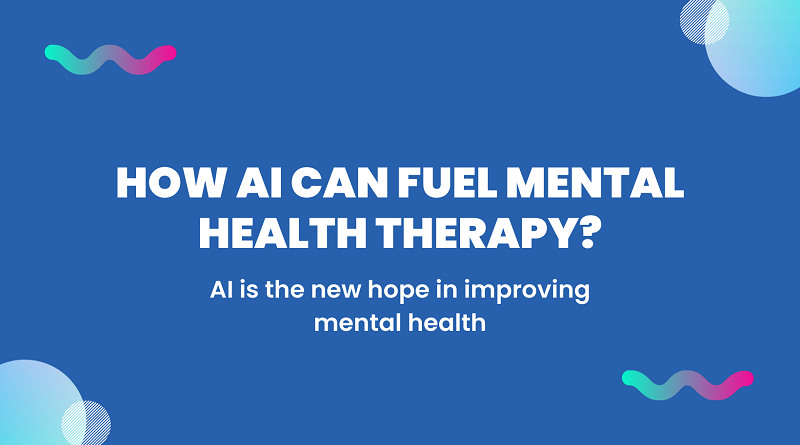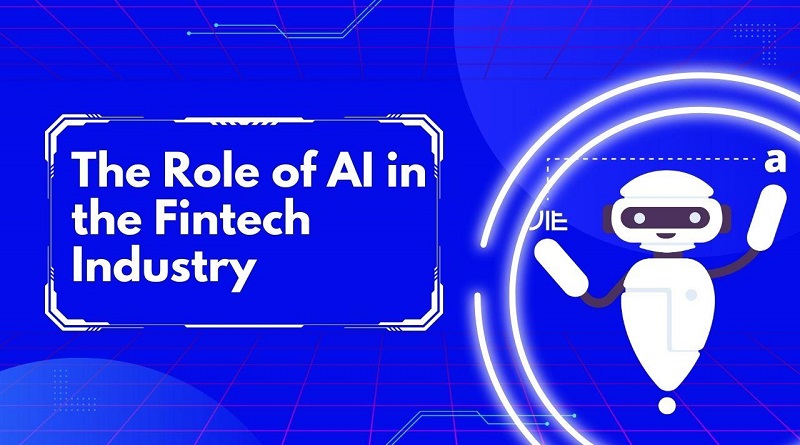How AI can Fuel Mental Health Therapy?

In the past few years, almost every healthcare sector is experiencing a new form of care delivery and Artificial Intelligence has played a prominent role in that.
Talking about the mental health field, AI is already doing wonders despite the fact that it is still in the development phase.
In fact, many global leaders are saying that AI is going to be a game-changer for the healthcare industry.
So, in this blog, we are going to explore how AI in mental health therapy can enhance patients’ outcomes without adding any complexity.
But first, why is AI needed in mental health therapy?
The healthcare industry is aware of how poor mental health is badly influencing the lives of people.
And here are some of the shocking stats about mental health.
- 1 in 5 US adults is suffering from serious mental illness.
- After the COVID-19 pandemic, there has been an almost 13% rise in the mental health illness
- Around 20% of the world population is suffering from the diagnosable mental illness
- Nearly 8 million deaths each year are associated with the mental health disorder
It’s not easy to diagnose a mental health illness, especially when there is a lack of advancement in care solutions.
The old-age healthcare system is preventing healthcare professionals from improving the mental well-being of the patients.
For instance,
- Patients are not able to understand the vital body signs
- Healthcare experts are stuck in their tedious clinical workflows
- The lack of real-time solutions
- It’s not easy to understand the behavioural patterns of the patient.
But AI holds the ability to address these challenges in a faster and more efficient manner.
So, let’s explore how AI is leveraging mental health care solutions along with reducing its treatment costs.
AI is improving the standard of mental health therapy
Data is everything in AI.
And here is how it helps in mental health therapy.
1. Analyzing patient data:
The analyzing data include – health records, medical reports, blood tests, brain images and voice recordings.
Data scientists perform various techniques like NLP (Natural Language Processing) and supervised machine learning.
The result,
- Can analyze common patients’ behavioural patterns
- Can predict the mental state of the patients
- Detect the mental illness more effectively
2. Focus more on the patient outcomes:
Healthcare professionals almost spend 80% of their time in clinical workflows.
As a result, they can’t focus on the patients’ mental health conditions properly.
But AI helps healthcare professionals to automate repetitive tasks so that they can focus on the patients’ needs and can find more promising ways to decode mental disorders.
3. Reducing errors in mental health therapy:
Medical errors result in almost 400,000 deaths in the alone USA.
In fact, it also influences the operational and medical costs of mental health therapy.
But AI is known for its accuracy and outcome-driven solutions.
For instance, AI-enabled tools are used to analyze the speech and facial patterns of the patient during the appointment or clinical visits.
In fact, it automatically identifies and decodes the errors in the exciting data which initially saves time and money.
4. Supports in the clinical assessment:
AI-enabled platforms contain a massive amount of research, illness and diagnosis data.
As per the patients’ mental health illness, the platform or tool supports the mental health specialist in the possible ways to improve the care outcomes while at the same time lowering the costs and time associated with the treatment.
5. Enriches self-management efforts:
Self-management is one of the most important factors in mental health therapy. But it’s not easy for the patients to understand its conditions as of a lack of knowledge regarding the symptoms and ideal solutions.
Healthcare chatbots and wearable devices help patients in improving their self-management efforts without adding any complex barriers.
But how? Let’s understand with an example.
Wearable devices frequently measure the vital body signs of patients and send that data directly into the AI-enabled app in real-time.
So, when a wearable device senses abnormal changes in the patient’s vital body signs, it notifies the patient to cope with its symptoms.
6. Monitors patient progress and suggests the ideal outcomes:
The AI-enabled tool monitors the treatment progress and the care outcomes on a regular basis efficiently and accurately.
Based on the progress data, the tool helps healthcare professionals in delivering a suitable treatment.
This way, it saves time for the healthcare professionals which directly reduces the medical and operational costs.
AI in mental health therapy: Explore the top benefits
AI is still in the development phase of mental health therapy.
Despite that, it offers numerous benefits. So, let’s explore each of them in detail.
1. Affordable
Rather than waiting weeks for an appointment with a mental health specialist, patients can easily decode or manage their conditions from their homes.
As a result, it eliminates the travelling costs and also online visits are more affordable than live-in appointments.
2. Accessibility:
Because of a huge shortage of talented medical staff, it’s not easy to access real-time and suitable manual therapy.
With AI-enabled software or apps, patients can effortlessly access mental health care solutions.
What’s more important is that it also helps the patients in self-management as per their care treatment, progress and real-time health conditions.
3. Peace of mind for the healthcare professionals:
Due to the high word burden and unnecessary workflows impacts mental health specialist productivity and overall well-being.
The AI-enabled platform lets healthcare professionals automate their repetitive workflows such as appointment management, data entry and billing.
As a result, it saves their valuable time which allows them to spend more time improving the mental health condition of the patients. Furthermore, it streamlines the clinical assessment process that directly reduces the time and operational cost.
This is how AI is transforming mental health therapy.
With AI, patients don’t need to suffer in silence anymore
Healthcare is adopting AI in almost every care solution.
IoT and wearable devices, healthcare software development, mHealth apps and other health tech solutions are some examples of it.
The future of AI in mental health therapy is promising.
Thus, this is a perfect business opportunity to develop an AI-enabled mental health platform that can benefit both patients and care providers under the same umbrella.





